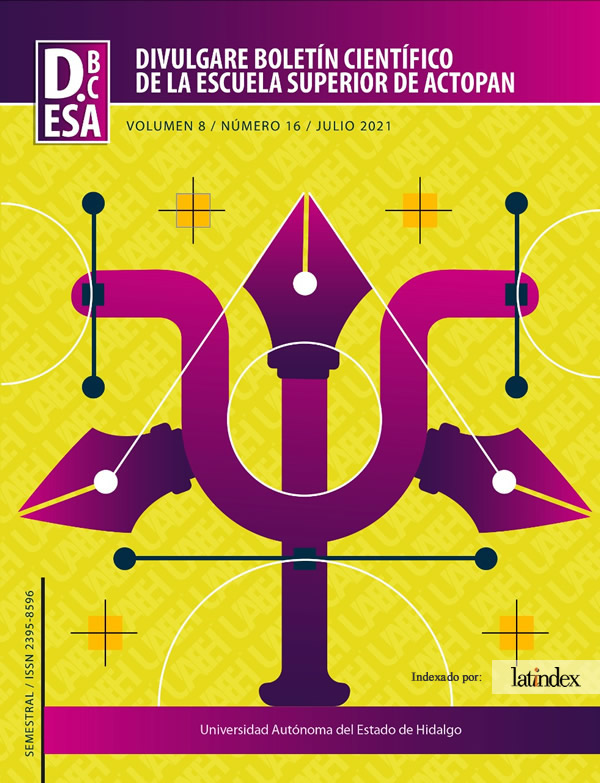Effect of social interaction on emotional facial recognition in the elderly.
Abstract
This research analyzed the effect of interventions to reinforce facial emotional recognition in older adults. The sample consisted of two groups consisting of a total of 10 older adults aged 60 to 95 years of age. One group consisted of n = 5 which received cognitive stimulation, play therapy and physical activation, while the other was made up of n = 5 older adults who only received social interaction. Emotional recognition was assessed by applying the task of recognition of emotional facial expressions of Ekman, P. et al. 2002 of the Affective Evaluation of the Elderly of Alvelais, M. and Samaniego, J. Results: from the analysis carried out by means of the T-student test for independent samples, the null hypothesis was verified, indicating that there are no significant differences between groups [ t = 1.19, p = 0.28]. In relation to the analysis for each emotion, significant differences were obtained in the denomination of the fear emotion [t (8) = 3.39, p <0.01], which indicates that older adults who have cognitive stimulation, ludotherapy and physical activation interventions they have a greater performance in the emotional recognition of fear (negative emotion) in front of older adults who only have social interaction intervention.
Downloads
References
Roa, P., Rosas, O. y Martínez, A. (2017). Revisión de la bibliografía sobre enfermedad de Alzheimer y otras demencias en México. La enfermedad de Alzheimer y otras demencias como problema nacional de salud. Intersistemas, S, A, de C,V,. 59-70. México, D.F.
Rodríguez, I. (2014). Demencia es “Devastadora”. Demencias, una visión panorámica. Temas derivados del V Simposio de medicina geriátrica “Demencias”. Editorial Universitaria Potosina. 21-32. San Luis Potosí.
Gutiérrez, L. (2014). Demencias en México: La necesidad de un Plan de Acción. Universidad Autónoma de San Luis Potosí. Demencias, una visión panorámica. (9-19). San Luis Potosí, México. Editorial Universitaria Potosina.
Bäzinger, T., Grandjean, D. y Scherer, L. (2009). Emotion Recognition From Expressions in Face, Voice, and Body: The Multimodal Emotion recognition Test (MERT). American Psychological Association, 9 (5), 691-704.
Carton, J. S., Kessler, E. A. & Pape, C. L. (1999). Nonverbal decoding skills and relationship well-being in adults. Journal of Nonverbal Behavior, 23, 91-100. doi:10.1023/A:1021339410262
Ciarrochi, J. V., Chan, A. Y. & Caputi, P. (2000). A critical evaluation of the emotional intelligence construct. Personality and Individual Differences, 28, 539-561. doi:10.1016/S0191-8869(99)00119-1
Feldman, R. S., Philippot, P. & Custrini, R. J. (1991). Social competence and nonverbal behavior. En R. S. Feldman & B. Rimé (Eds.), Fundamentals of nonverbal behavior (pp. 329-350). New York, NY: Cambridge University Pres
Shimokawa, A., Yatomi, N., Anamizu, S., Torii, S., Isono, H., Sugai, Y. & Kohno, M. (2001). Influence of deteriorating ability of emotional comprehension on interpersonal behavior in Alzheimer-type dementia. Brain and Cognition, 47, 423-433. doi:10.1006/ brcg.2001.1318
Narambuena, l., Vaiman, M., y Pereno, G. (2016). Reconocimiento de Emociones Faciales en Adultos Mayores de la Ciudad de Córdoba. Revista Psykhe. 25 (1); 1-13. doi: 10.7764/psykhe.25.1.791
Cavieres, A. & Valdebenito, M. (2007). Déficit en el reconocimiento de emociones faciales en la esquizofrenia. Implicancias clínicas y neuropsicológicas. Revista Chilena de NeuroPsiquiatría, 45(2), 120-128.
Blanchard-Fields, F. (2007). Everyday problem solving and emotion: An adult developmental perspective. Current Directions in Psychological Science, 16, 26-31. doi:10.1111/j.1467-8721.2007.00469.x
Carstensen, L. L., Fung, H. H. & Charles, S. T. (2003). Socioemotional selectivity theory and the regulation of emotion in the second half of life. Motivation and Emotion, 27, 103-123. doi:10.1023/A:1024569803230
Broche, Y., Rodríguez, M., y Martínez E. (2014). Memoria de rostros y reconocimiento emocional: generalidades teóricas, bases neurales y patologías asociadas. Actualidades en Psicología, 28 (116), 27-40. ISSN 2215-3535.
Molinero, C., Bonete, S., Gómez-Pérez, M., y Calero, M. (2015). Estudio normativo del “Test de 60 caras de Ekman” para Adolescentes españoles. Behavioral Psychology/ Psicología Conductual. 23 (2). 361-371.
Marcó-García, S., Ferrer-Quintero, M., Usall, J., Ochoa, S., Del Cacho, N., y Huerta-Ramos, E. (2019). Reconocimiento facial de emociones en trastornos neurológicos: una revisión narrativa. Rev. Neurol; 69 (5). 207-219. Doi: 10:33588/rn.6905.2019047
García-Casal JA, Goñi-Imízcoz M, Perea-Bartolomé MV, García- Moja C, Calvo-Simal S, Cardelle- García F, et al.. (2017). Rehabilitación del reconocimiento emociones combinada con estimulación cognitiva para personas con enfermedad de Alzheimer. Eficacia sobre aspectos cognitivos y funcionales. Rev Neurol. 65(3). 97-104.
Sara Calvo-Simal, Federico Cardelle-García, Manuel Franco-Martín González, M. (2006). Aspectos psicológicos y neurales en el aprendizaje del reconocimiento de emociones. Revista chilena de neuropsicología. 1 (1). 21-28










